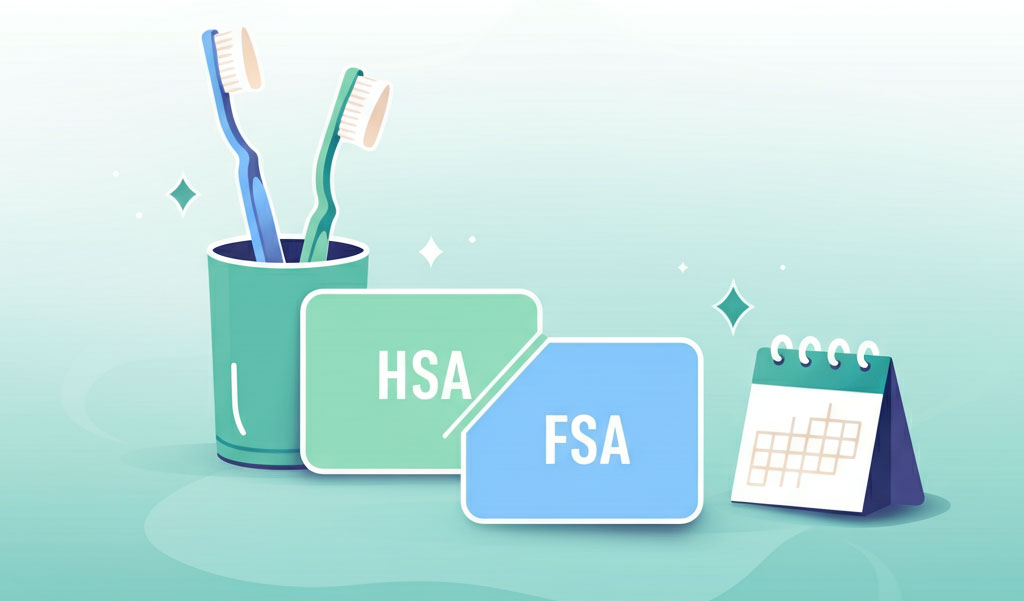Understanding your payment options can make a world of difference when it comes to managing your dental health. Many people have access to Health Savings Accounts (HSAs) or Flexible Spending Accounts (FSAs) but are not entirely sure how they work, especially for dental care. At East El Paso Dentist, we want to help you feel confident and informed.
These tax-advantaged accounts are powerful tools designed to help you pay for qualified medical and dental expenses. Let’s break down what they are, how they differ, and how you can use them to keep your smile healthy and your budget on track.
What Are HSAs and FSAs?

Think of HSAs and FSAs as personal savings accounts, but with a special superpower: the money you put into them is “tax-advantaged.” This means you can save on taxes while setting aside funds for your health needs, including dental work. Both accounts can be used to pay for a wide range of services, but they have unique rules that are important to understand.
What is a Health Savings Account (HSA)?
An HSA is a tax-advantaged savings account that you own. You can contribute money to it throughout the year to cover healthcare costs. One of the biggest benefits is that the money is yours to keep, even if you change jobs or health insurance plans.
Key Features of an HSA:
- Eligibility: To open and contribute to an HSA, you must be enrolled in a high-deductible health plan (HDHP).
- Rollover: The money in your HSA rolls over every single year. There is no “use-it-or-lose-it” rule. This allows you to build up a healthy balance over time.
- Portability: Your HSA is completely portable. It belongs to you, not your employer. If you switch jobs, the account and all its funds go with you.
- Investment Potential: Once your balance reaches a certain threshold, you can often invest the funds in your HSA, similar to a 401(k). This allows your savings to grow tax-free.
What is a Flexible Spending Account (FSA)?
An FSA is another tax-advantaged account, but this one is established through your employer. Each year during open enrollment, you decide how much money to contribute for the upcoming year. The total amount is then deducted from your paychecks in small increments.
Key Features of an FSA:
- Eligibility: You can enroll in an FSA if your employer offers it as part of your benefits package. You do not need to have an HDHP.
- Rollover: FSAs typically have a “use-it-or-lose-it” policy. You must spend the funds by the end of the plan year. However, some employers offer a grace period (a few extra months to spend the money) or allow a small amount (up to a federally set limit) to be carried over to the next year.
- Portability: An FSA is tied to your employer. If you leave your job, you generally lose access to the funds in your account.
- No Investment Option: FSA funds cannot be invested. They are strictly for spending on qualified expenses.
What Dental Expenses Can You Pay For?
Both HSAs and FSAs can be used for a broad range of diagnostic, preventive, and restorative dental treatments. While you should always check your specific plan details, here are some common qualified expenses:
- Routine teeth cleanings and check-ups
- Fillings, crowns, and bridges
- Root canals and extractions
- Orthodontic treatments like braces and aligners
- Dentures and dental implants
- Periodontal (gum) disease treatments
- X-rays and diagnostic services
Cosmetic procedures that are not medically necessary, like teeth whitening, are generally not covered.
Combining HSAs/FSAs with HFD Financing
Sometimes, a treatment plan may cost more than what you have available in your HSA or FSA. This is where other financing options can help. At our office on John Hayes St, we offer HFD dental financing, which allows you to break down the cost of care into manageable monthly payments.
You can use the funds from your HSA or FSA to make a down payment on your treatment and then use HFD financing to cover the remaining balance. This combination gives you maximum flexibility, ensuring you can get the care you need now without straining your budget.
Make Your Health a Priority
Understanding your payment options empowers you to make the best decisions for your oral health. Whether you have an HSA, an FSA, or are interested in our financing plans, our team at East El Paso Dentist is here to help you navigate the process.
Disclaimer: This blog post is for informational purposes only and is not intended as financial or tax advice. Please consult with your benefits administrator or a qualified financial professional to understand the specific rules of your account.
Ready to put your benefits to work for your smile? We’re here to help.
Schedule Your Appointment Online!
Call or Text: (915) 621-5003

